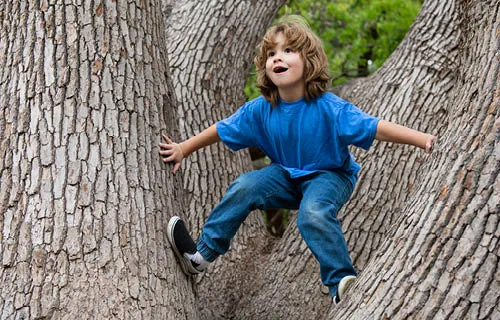Promoting gross motor skills
Gross motor skills encompass abilities such as running, jumping, climbing, and balancing, which play a crucial role in the physical activity and development during childhood. It's widely recognized how much joy movement brings to children. Activities like running, swimming, swinging, or riding a scooter enhance gross motor skills, coordination and endurance in children. Moreover, these activities boost self-confidence and reduce negative emotions like anger or sadness. They also contribute to reducing the risk of postural damage. Regular physical activity is essential for the development of a healthy body awareness, aiding children in better understanding and respecting their physical capabilities and limits. For instance, through climbing, children learn to assess their strength and realize how high they go without falling. Such activities foster an awareness of personal safety and encourage careful behavior. Leisure activities, such as playing ball games or visiting playgrounds, positively affect physical health, muscle development, and endurance, improve gross motor skills, and provide immense joy. Integrating regular physical activity into daily life is the best way to support the holistic development of children. The motor activities presented here are based on general knowledge of child development. Please note that every child is different and develops at their own pace. Always adapt the exercises to your child's individual abilities and needs. Ensure that all activities take place in a safe environment and that your child is appropriately supervised.



























